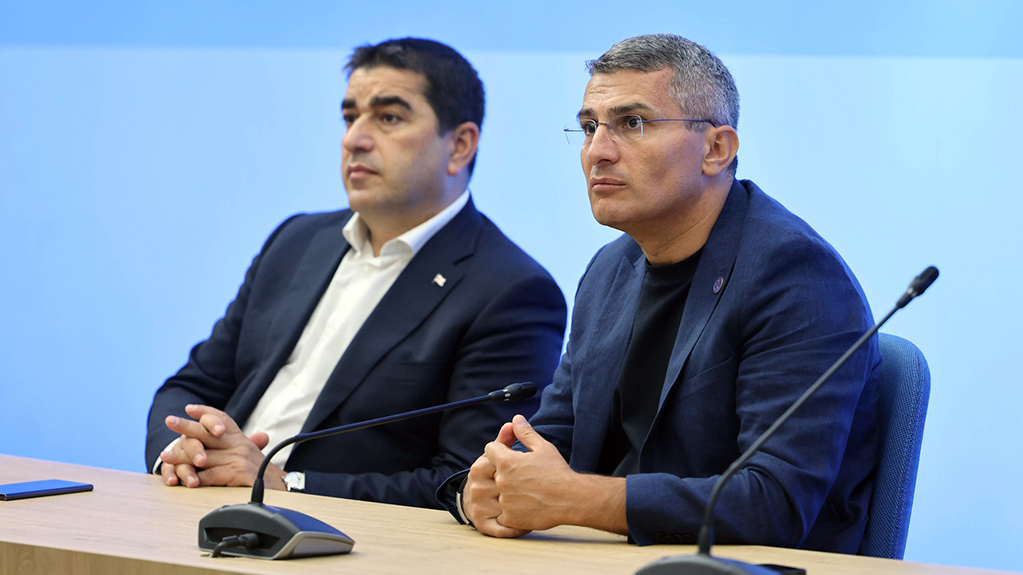The ruling party, Georgian Dream, has filed a complaint with the Communications Commission against the TV channels Mtavari Arkhi, Pirveli, and Formula for refusing to broadcast its election video clip. The video in question is a propaganda piece depicting Ukrainian cities and buildings bombed by Russia. The commission has scheduled a meeting on the matter for October 9, at 12:00.
News
"The filing of the complaint was expected, as we, the three channels, refused to promote the war and air the Georgian Dream propaganda advertisement. However, before we received notification from the commission about the scheduled meeting, the Mtavari Arkhi itself filed a complaint with the CEC against Georgian Dream, because the advertiser is responsible for the content of the advertisement, and this ad violates the agitation rules set by the election code. It will be interesting to see how the CEC reacts and whether it will act swiftly, as the first step is to determine whether the advertisement is unlawful. Only then can the commission decide whether we violated any rules.
We do not expect either the CEC or the Communications Commission to rule in favor of the channels. They will definitely side with Georgian Dream, as they always do. These bodies are directly tied to the ruling party and are not independent.
We are still prepared to fight a legal battle to document all of this and to create a record of who shaped such an election environment, where the media was persecuted for following the law,” said Muradashvili.
On October 5, Mtavari Arkhi, Pirveli, and Formula announced that Georgian Dream is demanding they air the 'immoral' banners depicting the war in Ukraine, which are currently displayed in the streets. In the TV companies' statement, they noted that the government is putting them in a dilemma - either broadcast the video clips or face massive fines that could even lead to the suspension of their operations.
"Although the endless fines imposed by the authorities are a heavy burden for critical channels, we still have no intention of indirectly supporting the Russian propaganda of Georgian Dream or mocking the Ukrainian people."
"We fully share the EU Ambassador's assessment that this is an 'outrageous, shameful, and horrifying' campaign, and therefore we refuse to broadcast these videos," stated the TV channels critical of the government. They called on the international community, Western diplomatic missions, civil society organizations, and the public defender to respond.
Speaker of Parliament Shalva Papuashvili described EU Ambassador Pavel Herchinski's statement about the Georgian Dream banners as "interference" and "hypocritical" in the election process, while the Secretary General of the ruling party, Kakha Kaladze, remarked that an ambassador from a "normal and developed country" would be "punished" for making such a statement.
One month before the parliamentary elections, on September 26, Georgian Dream election banners with the slogan 'No to War, Choose Peace appeared in Tbilisi. One side of the banners shows Ukrainian cities, churches, and other civilian infrastructure bombed by Russia, depicted in black and white. On the other side, in the colored portion, are images of illuminated Georgian cities, the Trinity Cathedral, a rehabilitated theater, a sports field, and more.
Before the EU Ambassador's assessment, Georgia's President, Salome Zurabishvili, called the banners 'shameful' and even suggested they were 'made in the forge of the KGB.'
The Ukrainian authorities also condemned the Georgian Dream campaign. According to a statement from the Ministry of Foreign Affairs, they consider it unacceptable to use in political advertising images depicting the horrific consequences of Russia's brutal war against Ukraine, the suffering of thousands of innocent people, and the destruction of churches and cultural heritage."















